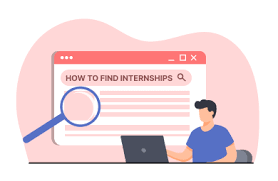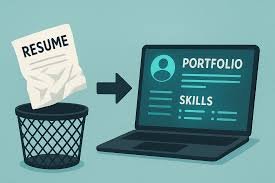
How to Find Internships: A Complete Guide
How to Find Internships: A Complete Guide
The internship is the single most valuable item a student can place on their resume. It’s the bridge between the academic theory you learn in class and the real-world practice that employers demand. In today's competitive job market, an internship is not just a nice-to-have; it's often a non-negotiable prerequisite for landing your first full-time role.
However, the process of finding and securing an internship can feel like a daunting, mysterious quest. Where do you look? How do you apply with no experience? How early is too early to start?
This complete guide breaks down the internship search into three clear, strategic phases: Preparation, Proactive Search, and Application Mastery. Follow this blueprint to move from confusion to securing a meaningful professional experience.
Phase 1: Strategic Preparation—Know Yourself, Know Your Goal
Before you send out a single application, you must define your targets. A focused search is always more effective than a broad one.
1. Define Your Goals (The Why)
Ask yourself what you truly want to gain. Is your goal to:
-
Explore: Try out a specific industry (e.g., finance vs. marketing) to see if you like it.
-
Gain Skills: Master a specific technical skill (e.g., Python, Salesforce, graphic design).
-
Network: Connect with industry leaders in a target city or company.
-
Earn Credit/Money: Fulfill an academic requirement or earn income.
Defining your "why" helps you filter opportunities. For example, if your goal is skill development, a small startup where you get hands-on experience might be better than a highly structured, large corporation.
2. Optimize Your Documents (The Tool Kit)
Your resume and cover letter are your pitch—they must be tailored for the internship market, which often prioritizes potential over past experience.
-
The Resume: Since you may have little work experience, highlight transferable skills from academic projects, volunteer roles, and campus leadership. Focus on quantifiable achievements. Instead of "Was club treasurer," write: "Managed a budget of $5,000, reducing unnecessary expenditure by 15%."
-
The Cover Letter: Customize every letter. Explicitly state why that company and why that role. Reference a recent company achievement or project to show you've done your research. Enthusiasm is currency in the internship market.
3. Start Early (The Timeline)
The best internships—especially those at large, well-known companies—operate on a long timeline.
-
For Summer Internships: Start searching and applying six to nine months in advance (September to December of the previous year).
-
For Spring/Fall Internships: Look three to five months ahead of the start date.
-
Tip: The larger the company, the earlier the deadline. The smaller the company or startup, the closer to the start date they might hire.
Phase 2: Proactive Search—Where to Look Beyond Google
Relying only on general job boards will only show you the most competitive listings. A comprehensive search leverages multiple channels.
1. Leverage Your College Resources (The Insider Track)
Your university is your most powerful tool in the internship search.
-
Career Services: Use your university’s dedicated portal (like Handshake or similar) which lists opportunities specifically targeting your school's students. They also offer resume reviews and mock interviews.
-
Faculty and Professors: They often have direct industry connections or know alumni who are hiring. Attend their office hours and ask for leads in your target field.
-
Alumni Network: Use LinkedIn's Alumni Tool to find graduates working at your dream companies. A connection request referencing your shared alma mater dramatically increases your chances of getting a response.
2. Master Online Platforms (The Hunting Grounds)
Use a mix of general and specialized boards.
-
General Boards: LinkedIn, Indeed, and Monster are necessary but require diligent filtering. Use search terms like "Internship 2025" or "Summer Analyst."
-
Niche Platforms: Search for platforms specific to your industry (e.g., Dice for tech, Idealist for non-profits, or industry-specific associations).
-
Company Career Pages: Many companies, especially smaller and mid-sized ones, only post internships on their own website's careers page. Check your top 10 target companies directly.
3. Network and Cold Outreach (The Hidden Market)
The majority of internships are secured through word-of-mouth or before they are officially posted.
-
Informational Interviews: Reach out to professionals on LinkedIn and ask for a 15-minute chat to gain career advice. Ask them, "Do you know of anyone whose team might be looking for an intern to assist with [specific task]?" This transforms a cold request into a warm lead.
-
Speculative Contact (Cold Emailing): If a small company doesn't advertise an internship but aligns with your goals, research the head of the relevant department (e.g., the Marketing Director). Send a short, highly professional email outlining what value you can create for them, even if they don't have a formal program. You are essentially proposing the internship.
Phase 3: Application Mastery—The Final Push
Landing an internship is rarely about luck; it's about preparation and persistence.
1. Be Persistent and Organized
The search is a numbers game. Use a simple spreadsheet to track: Company Name, Role, Date Applied, Deadline, Follow-Up Date, and Application Status. You should be aiming to send out a large, but targeted, volume of applications.
2. Prepare for the Interview (The Performance)
Internship interviews prioritize potential and enthusiasm over experience. Be ready to discuss the following:
-
Transferable Skills: Be ready to connect your academic, volunteer, or club experience directly to the job requirements.
-
Motivation: Articulate a clear, compelling reason for why you chose this company and this industry.
-
Thoughtful Questions: Always prepare three to five insightful questions for the interviewer. Ask about the biggest challenge the team is facing, or what a successful intern in that role would achieve in three months.
3. Follow Up and Close the Loop
Send a personalized thank-you email to every person you spoke with within 24 hours of the interview. Reference a specific topic or piece of advice they shared to reinforce your connection and listening skills.
By treating your internship search as a structured project with defined goals, multiple channels, and strategic preparation, you’ll not only find opportunities but you’ll also develop the professional skills necessary to turn that internship into a successful career launchpad.
FAQs on Finding Internships
1. Is it worth doing an unpaid internship?
The decision depends entirely on your goals and financial situation. If an unpaid internship is at a highly reputable company, provides unparalleled experience, or allows you to build a vital network (Goal: Network/Skills), it may be worthwhile. However, if paid options are available and comparable, prioritize them. Always check labor laws, as legitimate unpaid internships must primarily benefit the intern's learning, not the company's bottom line.
2. I have no relevant work experience. What goes on my resume?
Your resume should focus on academic projects, technical skills, and extracurricular leadership. List relevant coursework (e.g., "Advanced Data Modeling"), mention software and language proficiencies (e.g., Python, Tableau, Spanish), and detail any leadership or project management roles from clubs or volunteering. Quantify your impact in these areas wherever possible.
3. When should I start networking for an internship?
Start now. Networking is a long-term strategy, not a quick fix. You should begin building professional relationships with professors and alumni as soon as you know your general career interest. A contact you meet six months before an internship application deadline is much more likely to help you than one you meet a week before.




